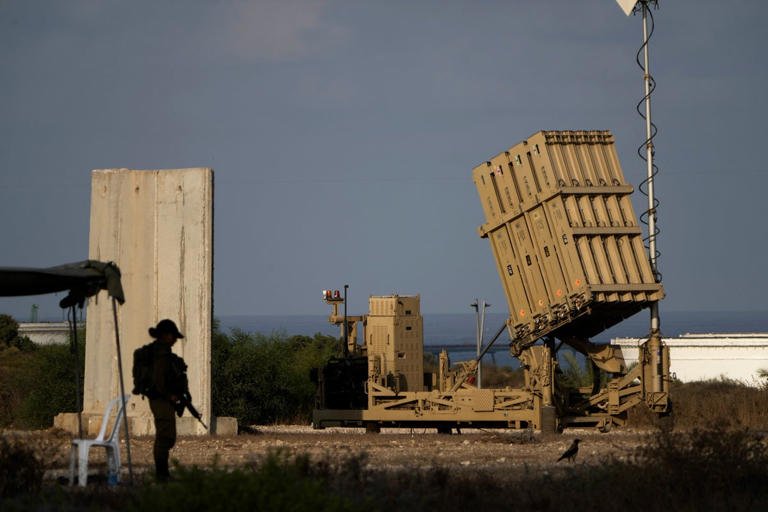Introduction: The Growing Threat
Israel faces escalating tensions with Iran following a recent attack, raising concerns of a direct conflict between the two adversaries. Amidst calls for restraint from the international community, Israel weighs its options for retaliation.
Iran’s Provocation and Israel’s Response
Iran’s recent attack, involving hundreds of drones and missiles targeting Israel, has heightened the risk of direct confrontation. Israeli officials vow retaliation but remain silent on the specifics of their response. The prospect of an Israeli strike on Iranian soil looms large, threatening to escalate the conflict.
International Diplomacy and Pressure
As tensions rise, international pressure mounts on Israel to exercise restraint. The United States, in particular, urges caution, emphasizing the need to consider the risks of escalation. President Joe Biden has emphasized strategic deliberation in addressing the crisis, signaling a reluctance to engage in offensive action against Iran.

Deliberations in Israel’s War Cabinet
Israel’s war cabinet engages in deliberations to determine its course of action. Considerations include the risk of further isolation on the international stage and the potential fallout from unilateral military action. The decision-making process is fraught with complexity as Israel navigates the delicate balance of regional dynamics.
Assessing Israel’s Isolation and International Support
Israel’s successful air defense operation garners temporary international support, bolstered by collaboration with key allies. The coalition effort underscores the importance of strategic partnerships in confronting shared threats. However, Israel risks losing this goodwill if it pursues unilateral military action without broader consensus.
The Role of Arab Partners and Regional Dynamics
Despite underlying tensions, Arab states tacitly support Israel’s defensive measures against Iranian aggression. However, their support may not extend to facilitating Israeli offensive actions against Iran. Overflight clearance poses logistical challenges and risks exacerbating regional tensions, complicating Israel’s strategic calculus.
Calculating the Risks of Escalation
A direct strike on Iranian soil carries significant risks of escalation, potentially triggering a multi-front regional conflict. Israel faces the daunting prospect of Hezbollah retaliation and strained military resources. Moreover, any action risks undermining fragile U.S. support and exacerbating regional instability.
Military Capacity and Strategic Considerations
Israel possesses a formidable military capability, including advanced weaponry and air defense systems. However, Iran’s air defense capabilities and concealed missile sites present formidable challenges. A targeted strike against Iranian proxies or cyber warfare may offer a more limited but strategic response.
Conclusion: Navigating a Precarious Path
Israel stands at a critical juncture as it weighs its response to Iranian aggression. The specter of direct conflict looms large, necessitating careful deliberation and strategic calculation. Amidst escalating tensions and international scrutiny, Israel faces the formidable task of safeguarding its security while averting a broader regional conflagration.

